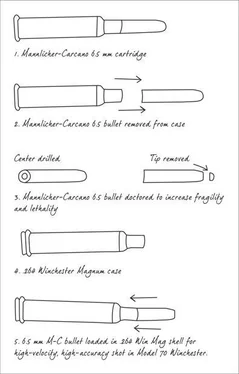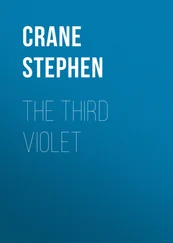Stephen Hunter - The Third Bullet
Здесь есть возможность читать онлайн «Stephen Hunter - The Third Bullet» весь текст электронной книги совершенно бесплатно (целиком полную версию без сокращений). В некоторых случаях можно слушать аудио, скачать через торрент в формате fb2 и присутствует краткое содержание. Жанр: Триллер, на английском языке. Описание произведения, (предисловие) а так же отзывы посетителей доступны на портале библиотеки ЛибКат.
- Название:The Third Bullet
- Автор:
- Жанр:
- Год:неизвестен
- ISBN:нет данных
- Рейтинг книги:5 / 5. Голосов: 1
-
Избранное:Добавить в избранное
- Отзывы:
-
Ваша оценка:
- 100
- 1
- 2
- 3
- 4
- 5
The Third Bullet: краткое содержание, описание и аннотация
Предлагаем к чтению аннотацию, описание, краткое содержание или предисловие (зависит от того, что написал сам автор книги «The Third Bullet»). Если вы не нашли необходимую информацию о книге — напишите в комментариях, мы постараемся отыскать её.
The Third Bullet — читать онлайн бесплатно полную книгу (весь текст) целиком
Ниже представлен текст книги, разбитый по страницам. Система сохранения места последней прочитанной страницы, позволяет с удобством читать онлайн бесплатно книгу «The Third Bullet», без необходимости каждый раз заново искать на чём Вы остановились. Поставьте закладку, и сможете в любой момент перейти на страницу, на которой закончили чтение.
Интервал:
Закладка:
“Let me ask you, Richard,” said Bob, “do you have a theory?”
“My problem is that I know too much about it. I can’t judge anymore. I see the flaws in everything, the contradictions, the micro findings. I could do twenty minutes on the metallurgical analysis of the bullet fragments found on the floor of the limousine and whether it disproves a second-gun theory or buttresses it, and it’s arguable either way. But I have no real opinion as to which side of the issue is correct. How can I judge? I wish I could forget some of the stuff I know, but I can’t make it go away. It’s my curse. On the other hand, it made me a good intel analyst, and it helps me in my chosen line of work.”
“Got it.”
“But since you’re paying – do you mind if I order another beer?”
“Go ahead.”
“I will share with you the one theory I’ve heard that explains everything. I may have made it up, I may have heard it somewhere, I don’t know, it was just in my mind one day. Perhaps God put it there. It accounts for every nuance and inconsistency and witness confusion and everything. The only problem is, after I tell you, I’ll have to kill you.”
Where is this guy going? Swagger thought.
“I’m not going to live much longer anyhow, so you may as well fire away.”
“Let me ask you one favor. Don’t interrupt when I say something that doesn’t accord with the thing we laughingly call ‘history.’ It’ll all become clear in the end.”
“I’m listening,” said Bob.
“On November 22, 1963,” Richard began, “a screwball Marxist loser named Lee Harvey Oswald, for reasons too banal to be believed, fired three shots at the president of the United States, who by utter coincidence showed up outside his workplace window one day. The first shot missed, because Oswald was an idiot. The second shot hit Kennedy under the neck, in the high back. It drove through his body, deflecting because of the president’s heavy neck musculature, hit Governor Connally in the back, passed through him, and hit him in the wrist and finally the thigh. Oswald’s third shot missed, because he was an idiot.
“Oswald is not important, but let’s stay with him for a second. He panicked, raced downstairs, and there met a police officer named Marion Baker, who commanded him to halt. Oswald instead bolted by the officer and headed out the door of the Texas Book Depository, and Officer Baker drew and fired. End of Oswald.
“What happened to Kennedy is the gist of our story. His Secret Service driver raced to Parkland Hospital, less than five minutes away, and a very good team of emergency physicians got to work. It was touch and go, nip and tuck, all through the day and night. In the morning Kennedy finally stabilized. Though feeble from the devastating wound, he hung on, sustained by his incredible will to live and the good wishes and hopes of millions around the world.
“The recovery was slow and painful. Lyndon Johnson became acting president in his absence and ruled judiciously, as guided by Kennedy’s advisers, and made no tragic, boneheaded decisions. No Vietnam, obviously. Meanwhile, Kennedy grew stronger and stronger each day. It was feared that his spine was damaged and that he would be paralyzed, but by the narrowest of margins, that proved not to be the case. During this time, his wife, Jackie, hovered like an angel at his bedside, and perhaps the power of her love was another force for the good in helping the man regain his capacities as he healed slowly over the months. He sat up in March ’64, he took his first tentative steps in May, and by August he returned to the White House (LBJ, of course, had never moved in) and began to take up light duties. By the convention, in mid-August, he was able to give a rousing speech and was renominated by unanimous acclaim. He barely had to campaign and barely did campaign, and his opponent, Barry Goldwater, was wiped out at the polls in November. Less than a year after the tragedy in Dallas, he was re-inaugurated as president and began his second term.
“But he had changed. At first only his closest associates noticed it, but as his policy tendencies, uncontested because of the sheer charisma of his near martyrdom, became evident, the press and then the public noticed. It seems that he had ‘seen the light,’ as it were. The near-death experience altered him profoundly; the long months of solitude with nothing except his medical team and the enduring love of his wife had cemented that alteration.
“Gone was the anti-Communist cold warrior. Gone was the savvy political pro, not above a dirty trick or two. Gone too were the philandering, the drug excesses, the games of carrot-and-stick with the press for maximum advantage, the partying, the glamour, the whole sense of the glory of Camelot. Instead, he became an ascetic.”
“A what?” said Swagger.
“Guy with great self-discipline, clear moral beliefs. True believer.”
“Got it.”
“Having come so close to death, he hated it and would have made it illegal if possible. In policy, that feeling of the fragility of life, the rapidness with which it may be taken away and the permanence that even a tiny act of violence leaves in its wake, turned him into a pacifist. He saw that war was wrong in the abstract and in the particular, that strength was a pitiful disguise for fear, that more was gained by reaching out with love than shunning while locking and loading. He immediately recalled the ten thousand American troops in the Republic of Vietnam, he canceled a hundred million in defense spending, he began to open avenues to rapprochement with Castro in Cuba and ordered the CIA to stop all its anti-Castro activities. He also forbade the agency from playing in the internal politics of numerous Latin American and African countries, all of which promptly went Communist, as did the Republic of South Vietnam, absorbed without struggle by the North Vietnamese. It didn’t matter to him that we ‘lost’ those countries; we ‘won’ by avoiding battle and the loss of our precious young men.
“His grandest ambition was to end our nuclear arms race with the Russians. The idea of millions cowering in fear across the globe because some mad general could push a button and end the world in nuclear holocaust, essentially on a whim, horrified and sickened him. That would be his crowning glory.
“In the years 1967 and 1968, his most ardent initiatives addressed the arms race, the escalating accumulation of atomic devices and delivery systems (their presence made the possibility of accidental annihilation all the more feasible). He offered the Russians everything he could think of, on bended knee, so to speak, anything to move away from the madness of mutually assured destruction that held the world in its iron grip, as the Atlases and the Poseidons and the SS-12s and 14s seethed and steamed in their silos all across the American West and the Siberian Plain, and the B-52s and the Tupolev Badgers held in their fail-safe orbits just outside of each other’s airspace, twenty-four/seven, their high, feathery contrails against the blue blurry reminders of how close we were to the brink and how fragile were the mechanisms that seemed to guard our safety.
“As for the Russians, they wouldn’t budge. Sure, some liberals in the politburo appreciated the opening for a softening of attitudes and lobbied to play along, but the hard-liners, astounded by how readily the president was acquiescing and how much he was giving up without recompense, counseled sternness, to see how much more could be gotten out of a fellow they thought was clinically insane, even if neither they nor anyone in the United States could say as much.
“Finally, as his second term was running out and egged on by liberal Eastern newspapers and new media that celebrated his willingness to defuse the bombs threatening the world and replace bellicosity with understanding, the president ordered the unthinkable. He ordered unilateral nuclear stand-down. To prove his sincerity, he would prostrate himself and his country to the Russians.
Читать дальшеИнтервал:
Закладка:
Похожие книги на «The Third Bullet»
Представляем Вашему вниманию похожие книги на «The Third Bullet» списком для выбора. Мы отобрали схожую по названию и смыслу литературу в надежде предоставить читателям больше вариантов отыскать новые, интересные, ещё непрочитанные произведения.
Обсуждение, отзывы о книге «The Third Bullet» и просто собственные мнения читателей. Оставьте ваши комментарии, напишите, что Вы думаете о произведении, его смысле или главных героях. Укажите что конкретно понравилось, а что нет, и почему Вы так считаете.












